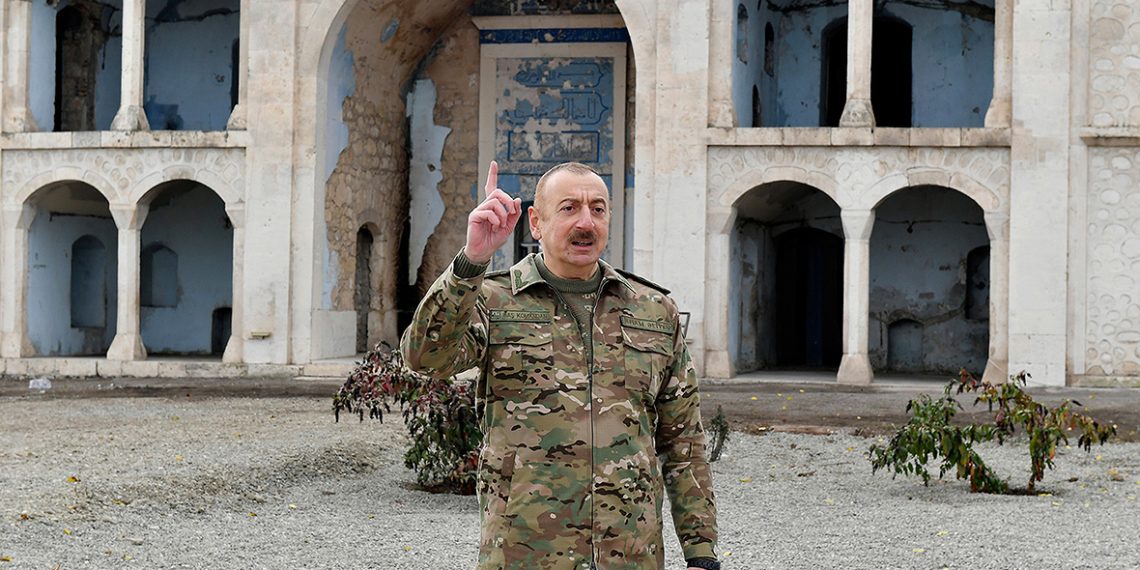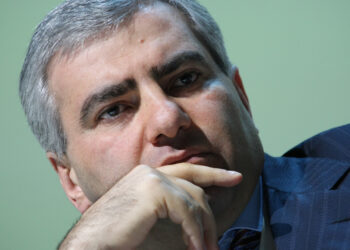YEREVAN (Realist English). The Cold War between Russia and the West affects the Armenian-Azerbaijani negotiations, Candidate of Historical Sciences, Azerbaijani conflictologist Arif Yunusov said during a live show of the «1in TV» channel.
“I don’t think Azerbaijan is preparing for a serious military action. Most likely, negotiations are underway now, they are very difficult, this is one of the elements of psychological pressure. Other elements are statements regarding the Zangezur corridor, and tomorrow there will be new statements. We must understand that the negotiation process is always accompanied by such actions and words,” the Azerbaijani expert said.
In his opinion, in Europe’s view, the stability of the region lies in the weakening of the Kremlin’s influence on Yerevan and Baku, as well as in the establishment of relations between Armenia and Azerbaijan.
“If the negotiation process were going on between the two conflicting parties, it would be one philosophy of negotiations, one logic. We could say a lot of things, how which side behaves itself, where it makes mistakes. But here the geopolitical factor has a serious impact. The Cold War between the West and Russia is also affecting our conflict. We already see different approaches to the development of the parties.
Officially, Yerevan is clearly betting on negotiations under the auspices of the European Union, but a column by the Minister of State of Nagorno-Karabakh has already been published in RIA Novosti, where, on the contrary, he condemns these contacts, believing that the European Union should not take any part in the negotiation process and everything should be under the auspices of Russia. Yes, they talk about the Minsk format, but still the emphasis is on Russia, that Russian peacekeeping troops should stay the longer the better, and even their composition should increase,” he added.
The Azerbaijani expert stressed that recently a cooling in relations between Moscow and Baku has been observed:
“So far, this is expressed only in certain publications on the pages of the press, statements of politicians on both sides. But it did not come to an official harsh statement by Aliyev or Putin. I don’t think it will, but there is a certain chill, it is largely connected with this geopolitical confrontation between the West and Russia. Therefore, I am still pessimistic about negotiating issues. Firstly, this is a long process, during which conflict situations will constantly arise both on the front line in Karabakh and on the Armenian-Azerbaijani border. There will be constant accusations in the negotiation process and there will be questions, and who is to blame for the fact that this or that meeting broke down. We must understand that we are not the only ones in this conflict. This geopolitical moment is even more important than the relations between our sides.”
Arif Yunusov expressed his opinion on the possible losses of the Armenian side:
“I will take an example from Turkey: the Ottoman Empire lost a lot, but in terms of perspectives it won much more than what it lost. Sometimes there are times when you lose, but you actually earn. I don’t think there will be any losses on the territory of Armenia, there is no question about it. Yes, they are talking about the Zangezur corridor, but we must understand that this is blackmail and PR by the Azerbaijani society, and not reality.
Nagorno-Karabakh is another matter. Everything goes around it. And here I would not say that the situation is critical for the Armenians, because Azerbaijan will not achieve its goal in the near future, this is a rather complicated issue. Everything will be as it is. I do not think that everything will be resolved in the near future so that Nagorno-Karabakh will become part of Azerbaijan. There will be nothing of the kind, not even cultural autonomy. Even this, I think, will not happen. Everything will be as it is, and there is no need to talk about any serious losses or acquisitions yet.”
In September 2020, with the tacit consent of the Kremlin, the armed forces of Turkey and Azerbaijan attacked Artsakh and Armenia with the support of international mercenaries and terrorists from Syria, Libya and Afghanistan. Since then, Baku and Ankara have continued their occupation policy on Armenian lands, physically destroying Armenian cultural heritage — churches, khachkars, museums and all kinds of mentioning of Armenians on stone or on paper.


















